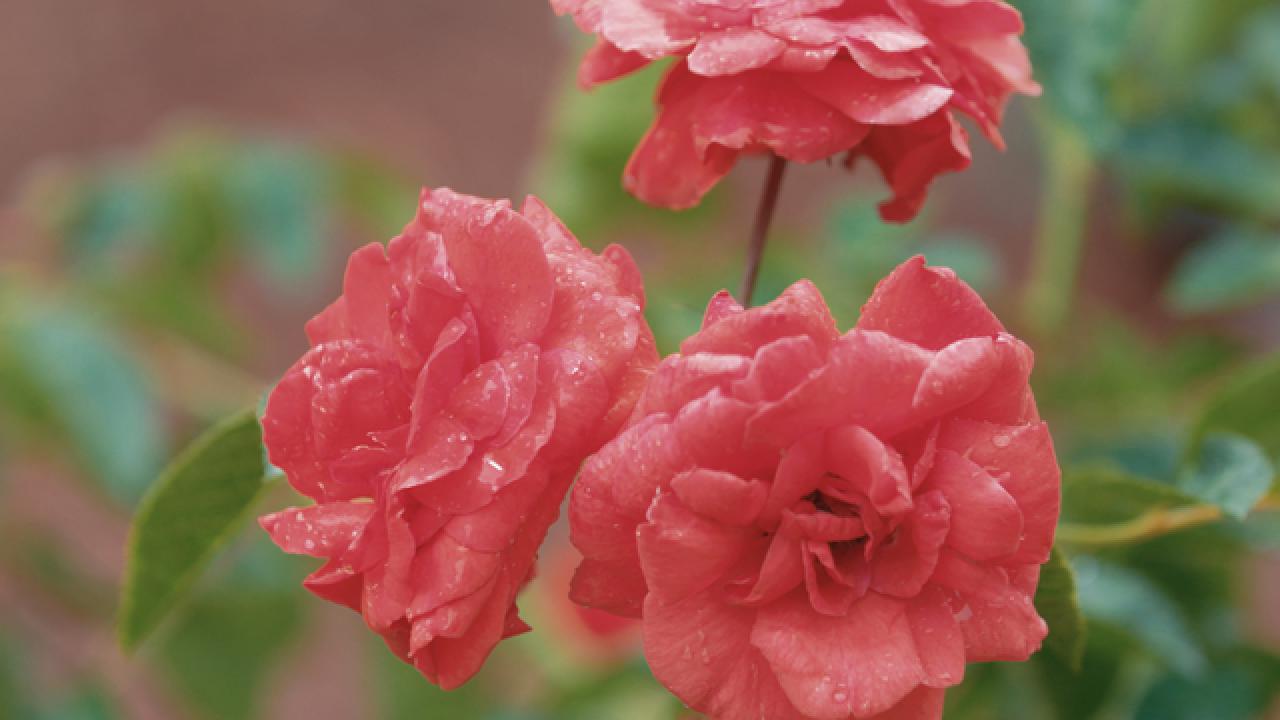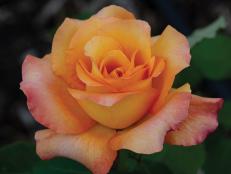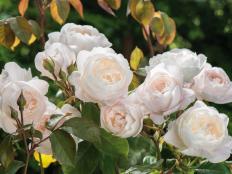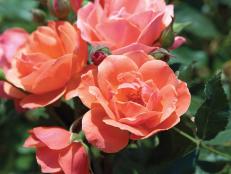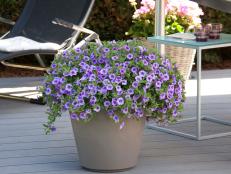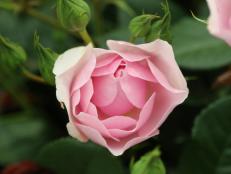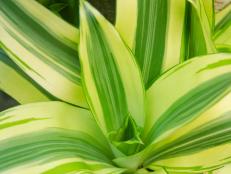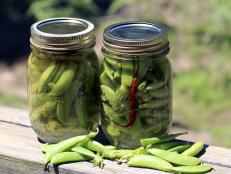Rose Leaves Turning Yellow
When rose leaves turn yellow and drop off, your plants are sending out a cry for help. Learn how to nurse them back to health.
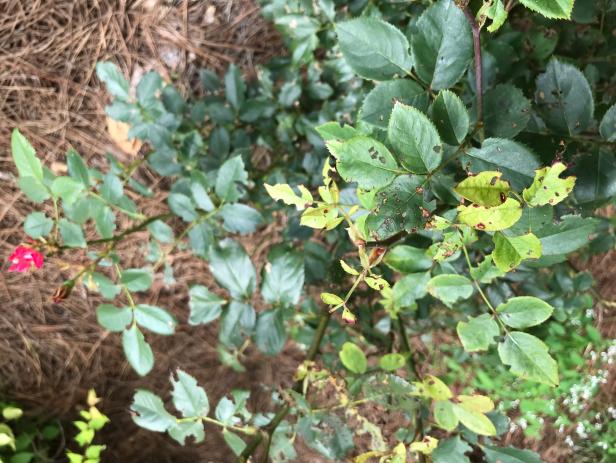
Lynn Coulter
Black spot is a common cause of rose leaves turning yellow and dropping prematurely.

Yellow rose leaves are a sign of trouble in your garden. Before you can fix the problem, you'll need to find out why it’s happening. Rose leaves turning yellow can be caused by several things, so take a close look at your rose bushes, and you'll be on the way to restoring them to good health.
Chlorosis
Chlorosis, or yellowing leaves, is common in some parts of the country. Rose leaves turn yellow because the pH of the soil is too high, or there’s not enough iron in the soil. It can also be caused by a lack of oxygen when the plants are overwatered or the soil doesn’t drain easily. You may see the leaf veins turn yellow while the leaves are still green.
Roses don’t like a lot of water around their roots, so be careful not to water too often. In most regions, watering twice a week in the summer is enough. You can also wait until your plants start to droop a little before you water again. If the yellowing persists, you may need to move the plants to an area with better drainage, but wait until they go dormant in the winter.
Underwatering
It seems strange that overwatering can lead to rose leaves yellowing, but not giving roses enough water can do the same thing. If you suspect this is the problem, poke your finger into the soil to see if it’s dry or use a moisture meter. It’s best to use drip irrigation or a soaker hose to deliver water deep into the soil. Sprinklers and other overhead watering systems can lose water to evaporation during hot weather, and water tends to run off, rather than soak into the ground when you use a garden hose.
Fertilizer
Like too much or too little water, too much or too little fertilizer can also cause yellowing. Follow the directions on your product when you feed your roses. Sometimes roses don’t get enough of certain nutrients, such as iron, magnesium and nitrogen, so if you think this is the problem, do a pH soil test to see whether you should add amendments. Your local extension service agent may also be able to test your soil for you. Use your soil test results or read up on the symptoms you’re seeing so you’ll know which nutrients to add, if any. Adding the wrong nutrients, or in the wrong amounts, can cause more harm. You’ll know you’re treating the right deficiency when you see green leaves again and the leaves stop falling off.
Pests

Julie Martens Forney
A simple solution of mild dish soap and water can knock down many pest outbreaks.
Spider mites that suck the juices out of rose leaves can also make the leaves turn yellow. Check the backs of the leaves in your rose garden periodically and tackle these pests as soon as they appear. You'll often see webs when they're present. Rose leafhoppers can cause yellowing, too, but they don't produce webs. Treat the plants with a product labeled for insect pest control or mix some water and a little mild dishwashing soap and apply it with a spray bottle. Try to use products designed for the specific problem you have, and step up to something stronger only if necessary. Some chemicals will kill good bugs and beneficial soil organisms, so treat conservatively when you can.
Diseases
Some diseases, such as black spot, can also turn rose leaves yellow. This fungal disease creates black or dark spots on leaves before they turn yellow and drop. Rake up any affected leaves around your plants and discard them. Don’t compost them, since black spot can spread. Also, replace the mulch under your plants with fresh, clean mulch, since the disease thrives in warm, humid weather and can even survive over the winter. Use a fungicide labeled for black spot to treat your plants, and avoid getting the foliage wet when you water. Preventative fungicides are available to help prevent the problem from showing up in the first place.
Stress

Morton Arboretum
Heat can stress people and plants. When the temperature soars, leaves on rose bushes may turn yellow and fall off. While the heat comes from the sun overhead, it can also be reflected when dark mulch under the bushes absorbs the heat and radiates it back onto the plants. Replace any dark mulch under your roses, and mulch any bare ground around them, with light-colored mulch. Weed killer can also cause yellowing if it's applied too close to rose bushes; the yellowing can even show up in the next growing season.
Shade
Sometimes rose leaves yellow and fall because they’re being shaded by other leaves above them. This is usually a natural part of the growth and aging cycle. Rose leaves can also fall when thick, dense foliage hampers good air circulation. There’s not much you can do about this, but rose bushes will usually regain their balance and continue to grow.
